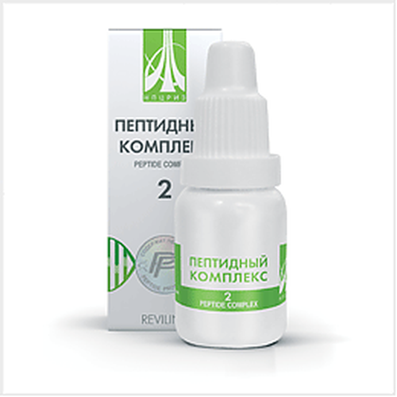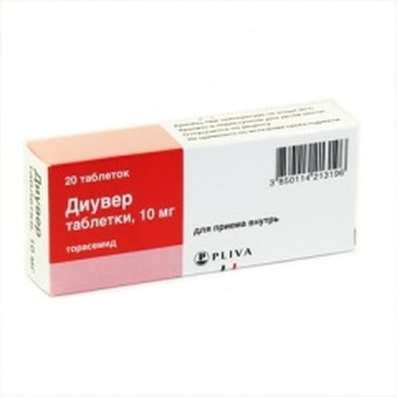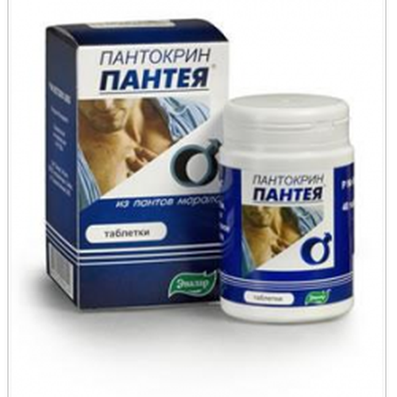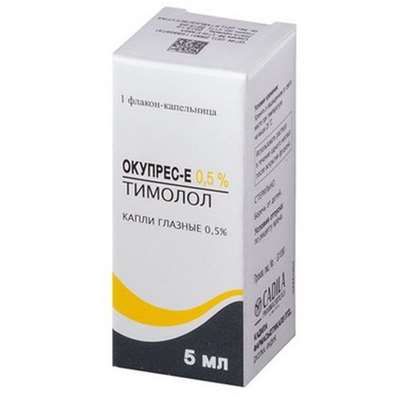Instruction for use: Hippophaes oleum (Oleum Hippophaes)
I want this, give me price
Pharmacological group
dermotropic means
Regenerants and reparants
Nosological classification (ICD-10)
I84 Hemorrhoids
Painful hemorrhoids, External hemorrhoids, Internal hemorrhoids, Inflammation of hemorrhoids, Aggravation of hemorrhoids, Chronic bleeding hemorrhoids, Acute hemorrhoidal attack
J04.0 Acute laryngitis
Lektorsky laryngitis, Acute catarrhal Laryngitis,Laryngitis is an acute abscess
J31.2 Chronic pharyngitis
Pharyngitis chronic, Exacerbation of inflammatory diseases of the pharynx and oral cavityHypertrophic pharyngitis, Inflammatory process of pharynx, Sore Throat Infection, Infectious-inflammatory diseases of the pharynx, Infectious-inflammatory diseases of the oral cavity and pharynx, Atrophic pharyngitis
K25 Gastric ulcer
Helicobacter pylori, Pain syndrome in gastric ulcer, Pain syndrome in gastric ulcer and duodenal ulcer, Inflammation of the gastric mucosa, Inflammation of the gastrointestinal mucosa, Benign gastric ulcer, The disease of the stomach and duodenum, asotsiirovannoe with Helicobacter pylori, Aggravation gastroduodenita on the background of peptic ulcer, Exacerbation of peptic ulcer, The aggravation of gastric ulcer, The organic gastrointestinal disease, Peptic ulcer of the stomach and duodenum, Postoperative gastric ulcer, Recurrent ulcers, Symptomatic gastric ulcers, Chronic inflammatory disease of the upper gastrointestinal tract, associated with Helicobacter pylori, Helicobacter pylori eradication, Erosive and ulcerative lesions of the stomach, Erosive lesions of the stomach, The erosion of the gastric mucosa, Peptic ulcer disease, Stomach ulcer, Gastric lesion, Ulcerative lesions of the stomach, Symptomatic ulcers of the stomach and duodenum
K26 Duodenal Ulcer
Pain with duodenal ulcer, Pain syndrome in gastric ulcer and duodenal ulcer, The disease of the stomach and duodenum, asotsiirovannoe with Helicobacter pylori, Exacerbation of peptic ulcer, The worsening of duodenal ulcer, Peptic ulcer of the stomach and duodenum, Relapse of duodenal ulcers, Symptomatic ulcers of the stomach and duodenum, Helicobacter pylori eradication, Erosive and ulcerative lesions of the duodenum, Erosive-ulcerative lesions of duodenal ulcers associated with Helicobacter pylori, Erosive lesions of the duodenum, Duodenal ulcer, Ulcerative lesions of the duodenum]
K29.6.1 * Gastritis is hyperacid
Gastritis with high acidity, Hyperacid gastritis, Pain in acute gastritis with high acidity, Gastritis with increased secretory function, Gastritis chronic hypersecretory, Hyperacid gastritis
K51.2 Ulcerative (chronic) proctitis
Paraproctitis, Prostitis ulcerative, Erosive proctitis, Catarrhal proctitis
K51.8 Other Ulcerative Colitis
K52.9 Non-infectious gastroenteritis and colitis, unspecified
Syndrome of the elderly intestine, Diarrhea chronic, Hemocolitis, Digestive tract infections, Collagenous colitis, Mucous colitis, Chronic colitis, Chronic enteritis, Infectious Disease of the GI tract, Colitis associated with taking antibiotics
K62.6 Anus of the anus and rectum
Ulcer of rectum, Acute gonorrhea proctitis in women, Ulcers of the anal region
K62.7 Radiation proctitis
Radiation Proctitis, Radial proctitis
K62.8.1 * Proctitis
Atrophic proctitis, Anusitis
K63.8.1 * Proctosigmoiditis
K83.0 Cholangitis
Inflammation of the biliary tractá Inflammatory diseases of the biliary tractá Biliary tract infectionsá Infection of the gallbladder and biliary tractá Infection of the gallbladder and bile ductsá Infection of the biliary tractá Infection of the biliary tract and gastrointestinal tractá Acute cholangitisá Cholangiolithiasisá Cholangitisá Cholecystage hepatitisá Chronic cholangitisá Bile duct infectioná Infection of bile ductsá Primary sclerosing cholangitisá Sclerosing cholangitis primary
L58.9 Radiation [ray] dermatitis, unspecified
Radiation burns, Radiation dermatitis, Radiation dermatitis
N76.0 Acute vaginitis
Nonspecific vaginitis, Colpitis of coliprotein etiology, Vaginal infections
N86 Erosion and ectropion of cervix uteri
Cervical Ectopy, Ectropion of cervix uteri, Vaginal erosion, Cervical erosion, Ulcers on the cervix, Cervical ectopia
T66 Unspecified radiation effects
Radiation Disease, Diarrhea radiation, Gastrointestinal syndrome with irradiation, Radiation sickness, Radiation disorders of mucous membranes, Irradiation chronic, Osteoradionecrosis, Acute radiation sickness, Acute and chronic radiation injuries, Acute radiation syndrome with radiation therapy, Subacute and chronic radiation sickness, Radiation Neuropathy, Radiation edema, Radiation damage to the nervous system, Radiation immunodeficiency, Radiation syndrome, Radio-epileleitis, Radiation acute syndrome, State after irradiation, Cytopenia due to previous radiation or chemotherapy, Cytopenia radiation, Cytopenia due to radiation therapy, Cytopenia due to chemotherapy
Z98.8 Other specified poslehirurgicheskie state
Suppurative complications in the postoperative period, Suppurative complications of surgery, Postoperative liver dysfunction, Postoperative vomiting, Postoperative complications, The postoperative period, The early postoperative period
Characteristics of Hippophaes oleum
Seabuckthorn oil is obtained from fruit pulp and sea-buckthorn seeds (Hippophea rhamnoides L.) - a bush of the elk family (Elaeagnaceae) - after squeezing the juices. The resulting oily, orange-red liquid with a characteristic odor and taste (acid number not exceeding 14.5) contains a mixture of carotenes and carotenoids (180 mg%), tocopherols (110 mg%), chlorophyll substances, glycerides of oleic, linoleic, palmitic and stearic fatty acids. The extract of sea-buckthorn is crushed, is obtained from its leaves.
In the pulp of the fruit of sea buckthorn contains up to 8% of fatty oil (in seeds - up to 12%), sugar (up to 7%), malic and tartaric acids (up to 3%), stearins (up to 2%), phospholipids (up to 1%), tannins, a diverse complex of vitamins with a predominance of carotenoids (carotene - about 50 mg%, as well as lycopene and zeaxanthin) and other substances. The total content of carotenoids can reach 250 mg%. The content of vitamins and their ratio varies depending on the natural conditions of plant growth.
In medical practice, sea buckthorn oil is used as a solution of oil for oral and external use, in the form of capsules, suppositories.
Model clinical-pharmacological article 1
Characteristic
Contains carotene and carotenoids (not less than 180 mg%), the amount of tocopherols (not less than 110 mg%), glycerides of oleic, linoleic, palmitic and stearic acids.
Pharmacotherapy
Means of plant origin, stimulates the reparative processes in the skin and mucous membranes, accelerates the healing of damaged tissues. Has a restorative effect, has antioxidant and cytoprotective effect. Reduces the intensity of free-radical processes and protects against damage to cellular and subcellular membranes (due to the presence of fat-soluble bioantioxidants).
Indications
For oral administration and topical application: radiation damage to the skin and mucous membranes; colpitis, endocervicitis, erosion of the cervix; gastric ulcer and duodenal ulcer, hyperacid gastritis, period after GI operations, atrophic pharyngitis, laryngitis, chronic colitis, ulcerative colitis (as part of combination therapy). Suppositories - hemorrhoids, anal fissures, rectum ulcers, proctitis, erosive ulcerative sphincteritis and proctitis, catarrhal and atrophic proctitis, radiation damage to the mucous membrane of the lower parts of the colon.
Contraindications
Hypersensitivity; for ingestion - cholecystitis, cholangitis, pancreatitis, hepatitis, cholelithiasis; for rectal administration, diarrhea.
Dosing
Outer, topical, oral, rectal and inhalation.
Outer, in the form of oil dressings, every other day (before the appearance of granulations), after cleaning the affected area from necrotic tissues.
Locally, with colpitis and endocervicitis, the walls of the vagina are smeared after being pre-cleaned with cotton balls. With erosions of the cervix, copiously moistened tampons (5-10 ml per tampon) are pressed firmly against the eroded surface, changing them daily. The course of treatment of colpitis - 10-15 procedures, endocervicitis and erosions - 8-12 procedures. If necessary, repeat the course in 4-6 weeks.
Inside, 2-3 times a day at the rate of 1.6 g of oil per reception (8 capsules or 5 ml). The course of treatment is 10-14 days.
As a restorative drug - 0.8 g once a day.
In diseases of the upper respiratory tract - in the form of inhalation (15 min daily). The course of treatment - 8-10 procedures.
Rectal, after emptying the intestine is injected deep into the anus. Adults and children over 14 years of age are prescribed 0.5 g 2 times a day for 10-15 days. Children under 6 years - 0.5 g 1 time per day; 6-14 years - 0.5 g 1-2 times a day. The course of treatment is 14 days or more.
If necessary, after 4-6 weeks, repeat the course of treatment.
Side effect
Bitterness in the mouth, burning (for external and rectal use), diarrhea, biliary colic, allergic reactions.

 Cart
Cart





